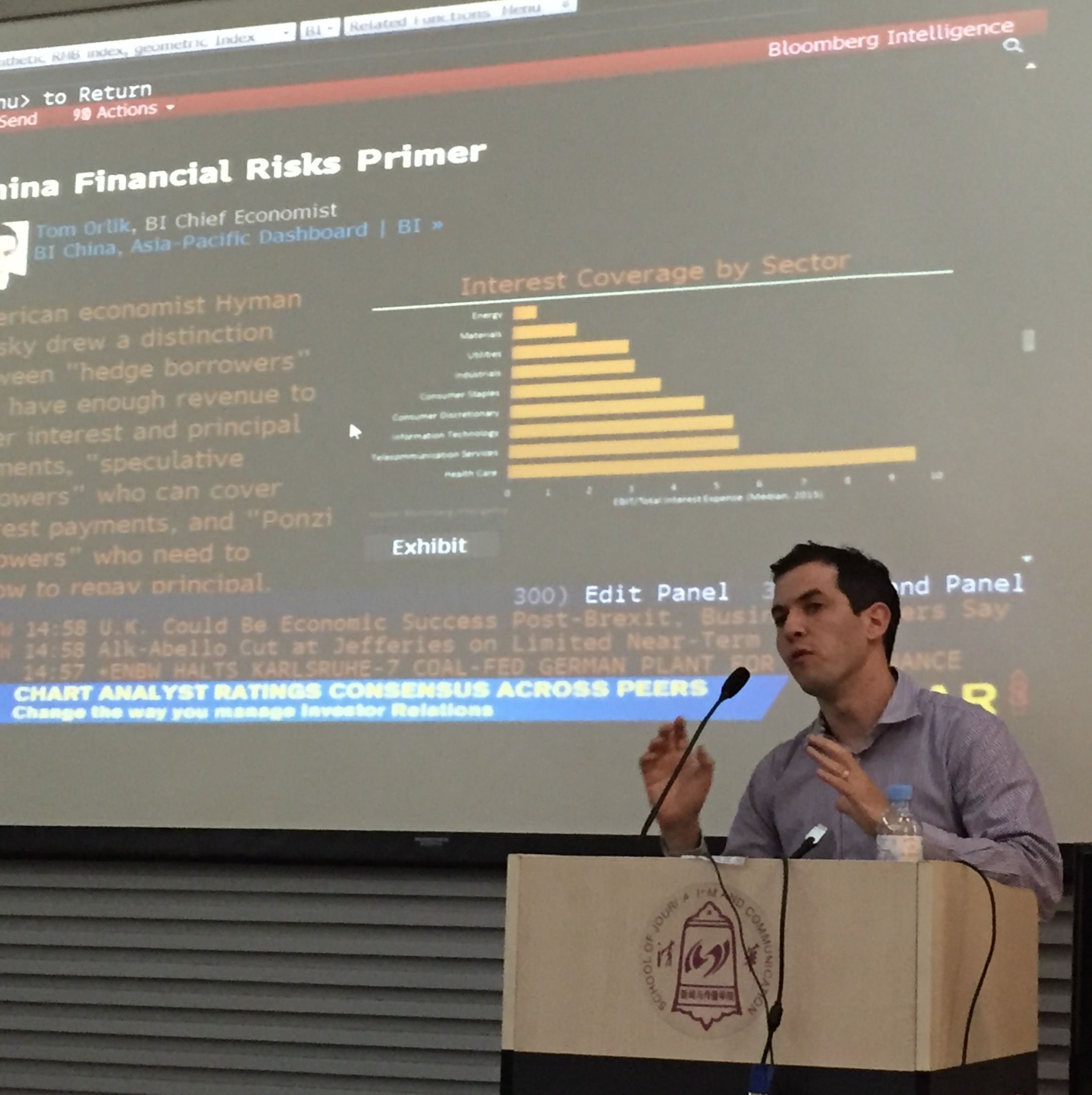China has abundant data for reporting about finance and the economy, and people shouldn't believe the chatter that most statistics aren't useful, Tom Orlik, chief Asia economist for Bloomberg, told an audience at Tsinghua University.
Orlik said that websites of the National Bureau of Statistics, People's Bank of China and Ministry of Finance are awash with resources for interesting and accurate stories. "There is no conspiracy" to skew GDP figures, although there can be inconsistencies in data from some municipalities and provinces.
"Don't always listen to the consensus," said Orlik, who studied English literature at University College London and earned a master's in public policy from Harvard. There are many ways to analyze activity, such as Alipay data, companies' financial reports and indexes based on electricity generation and transport.
Orlik, the latest speaker at Tsinghua's Bloomberg Lecture Series, advised students to improve both their Chinese and English and become skillful with spreadsheets, infographics and financial statements. "The most successful economists and journalists are those who can simplify complex ideas" into simple-to-understand stories and reports.
He joked that explaining China's economy and culture to Americans often requires comical comparisons, and used the example: "Rice is a food Chinese eat with their meals instead of french fries," he said to loud laughs from the journalism, management and economics students. The Bloomberg Lecture Series, now in its fourth year, is hosted by Tsinghua Professors Hang Min, Shi Anbin and Lee Miller.
Orlik, who previously worked at the IMF, British Treasury and Wall Street Journal recommended students to be patient with their career paths. Try many internships and jobs, "and hopefully you will find what you really enjoy doing."


